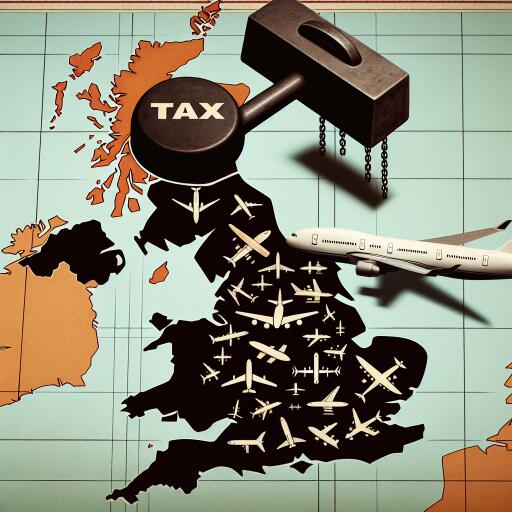Ryanair: UK Flight Tax Puts Regional Airports at ‘Enormous Disadvantage’
Ryanair has voiced significant concern over the impact of Air Passenger Duty (APD) on regional airports throughout the United Kingdom. The airline argues that this tax is creating a substantial competitive disadvantage for these airports in comparison to their European counterparts. According to Ryanair’s Chief Commercial Officer, Jason McGuinness, the restriction imposed by APD on the growth of flight capacity is severely hampering many airports outside of London.
APD is a duty charged on passengers flying from a UK airport. The rate for passengers with economy tickets starts at £6.50 for domestic flights and £13 for short-haul international flights. These rates escalate for longer journeys and for passengers flying in premium cabins. McGuinness highlighted the detrimental effect of this tax on the airline’s operational decisions, particularly regarding capacity allocation.
“We’re working closely with small regional UK airlines, such as those in Norwich, Exeter, Teesside. However, they’re at an enormous disadvantage now versus their European competitors due to APD,” McGuinness stated. Ryanair adopts a cost-based approach for capacity allocation, prioritizing airports that offer more competitive costs. This strategy has led to long-term agreements with airports like Dubrovnik and Tangier, establishing them as new bases for the airline.
The consideration then arises: does Ryanair allocate capacity to these new bases or to UK regional airports like Exeter or Teesside, where the £13 departure tax is applied to passengers? According to McGuinness, the answer is clear. The financial sensibility dictates that capacity is directed away from regions where this “departure penalty” is in effect, further indicating the profound implications of APD on regional airports.
While London’s airports may navigate this challenge with relative ease, McGuinness warns of the dire consequences facing the UK’s regional airports. “London will always be fine, but where UK APD is doing untold damage is to the regional UK airports. I think that’s going to get worse over the next number of years, predominantly because European airports are becoming significantly more competitive,” he explained.
This critique comes at a time when the importance of enhancing regional connectivity and ensuring competitive operations for regional airports is widely recognized. The adverse effects of APD on these airports’ ability to grow and compete on an international scale highlight the necessity for reviewing and possibly reforming the duty structure.
The Treasury was approached regarding Ryanair’s allegations and the broader issues raised by APD on the UK’s regional airports, highlighting the ongoing discussion on balancing taxation and the aviation sector’s growth.
As stakeholders from across the aviation industry call for a reevaluation of APD, the focus turns to the government for potential policy adjustments. The aim is to foster an environment where regional airports can thrive, enhancing connectivity and economic development across the UK. As this debate continues, the impact of APD on the competitive landscape of international aviation remains a central concern for airlines and passengers alike.
